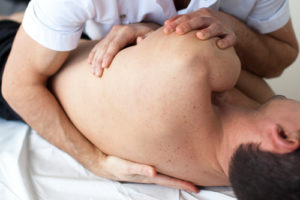Attorney for Bed Sores
Nursing Home Abuse & Neglect
Injury Lawyer Serving all of PA and NJ
Bedsores · Wrongful Death · Malpractice Lawsuits · Elder Abuse
Bed Sores Are Preventable
Bed sores, also known as “bedsores” (one word), decubitus ulcers, pressure ulcers, or pressure sores, are a common occurrence in Pennsylvania and New Jersey nursing homes, especially in Bucks County, Montgomery County, and Philadelphia County. The good news is that they are almost entirely preventable. These pressure-induced skin ulcerations develop when an individual is left for prolonged periods in the same position. When nursing home residents are left unattended in their beds or wheelchairs, they often develop bed or pressure sores.
Bed sores begin as a minor wound, but if neglected, the wound can rapidly deteriorate. Serious bed sores involve the death of living tissue and often create an infection that can be bone deep. In severe cases, these wounds can penetrate an individual’s internal organs. Bed sores commonly develop on thin skin where bony prominences such as the shoulder blades, heels, elbows, sacrum, and hips are present.
Bed Sores’ Stages of Deterioration
- Stage I bedsores generally consist of a small patch of reddened skin about the size of a quarter. They are usually not painful but pose a serious threat. If proper measures are not taken, the Stage I bed sore can quickly deteriorate.
- Stage II bedsores have a small patch of skin that will grow in size, and the wound will begin to develop some depth.
- Stage III bedsores are considerably larger as is the depth. Tissue in and around the wound begins to die and become necrotic (or rot).
- Stage IV bedsores are significantly larger and deeper. Necrotic tissue has often grown considerably and begins emanating a foul smell. Wounds left to deteriorate to a Stage IV are commonly infected. Pus and discharge are often found. The wound’s depth frequently reaches the individual’s underlying bone.
- Unstageable bed sores occur when the deterioration of the wound and its depth are unclear; therefore, accurate staging cannot be determined. Note that Unstageable bed sores are at least Stage III level pressure ulcers.
- Deep Tissue Injuries are another type of bed sore. They begin just below the skin’s surface. As muscle and tissue rots, the skin eventually opens to a severe and deep wound.
|
Nursing Home Neglect and Bed Sores
In New Jersey and Pennsylvania, (including Philadelphia, Bucks, and Montgomery counties), nursing home staff are responsible for turning and repositioning nursing home residents at risk of pressure ulcers. Turning and repositioning needs to be provided at least every two hours. The mandatory two-hour time period is often overlooked and undervalued by care providers. This type of nursing home neglect can be detrimental to nursing home residents. Individuals who are left for prolonged periods without being turned and repositioned will most likely develop bed sores.
Bedsore Risk Factors
There are other risk factors for bed sores, such as health conditions, malnutrition in nursing homes, dehydration, and poor hygiene and bedsores; however, bed sores cannot form without unrelieved pressure. That is why they are also known as pressure ulcers or pressure sores.
Bed Sores and the Law
An individual who is admitted to a Pennsylvania or New Jersey nursing home is required under federal and state laws to be assessed for his or her potential for developing a bed sore. If an individual is at high risk of developing a bed sore, the nursing home staff is required to pay close attention to the issue. The skin will need to be monitored regularly for bed sore development. Additionally, interventions (turning or repositioning residents; use of cushions or air mattresses) need to be implemented to prevent bed sore development and/or deterioration. If these actions are not taken, the nursing home can be held liable for bed sore development.
Contact an Experienced Nursing Home Abuse Attorney

This website is owned by Attorney Brian P. Murphy. Its purpose is to assist you in understanding your rights, especially when it comes to preventing or protecting yourself and/or your loved ones against nursing home abuse, neglect, bedsores, dehydration, and wrongful death. Legal matters are billed on a contingency fee basis.
Nothing on this website is to be construed as attorney advice or otherwise creating an attorney-client relationship. If you may be interested in establishing a relationship with The Law Firm of Brian P. Murphy, PC, please contact us to discuss your options.

